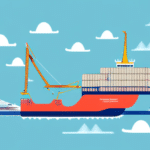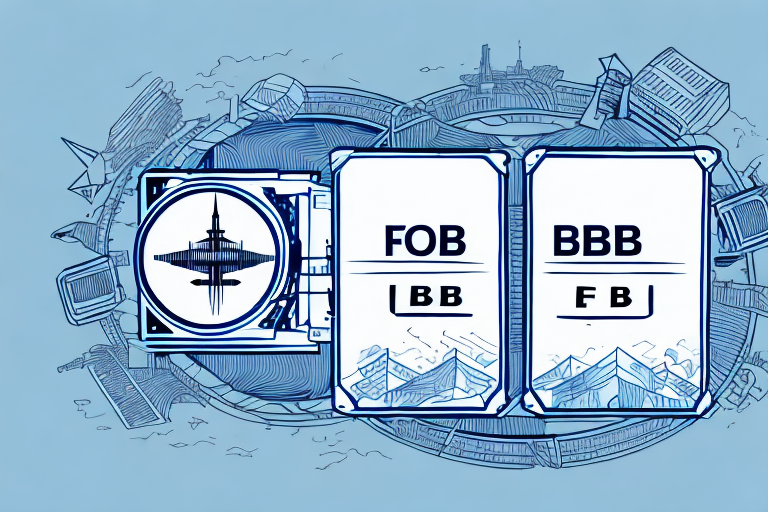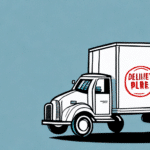Introduction to FOB Destination
As a business owner navigating the complexities of international shipping, understanding key shipping terms is crucial. One such term is FOB Destination (Free on Board Destination), a common shipping agreement that can significantly impact your logistics and cost management. This article delves into what FOB Destination entails, its operational mechanics, benefits, legal considerations, and how it compares to other shipping methods, helping you make informed decisions for your business.
What is FOB Destination?
Definition and Operational Mechanics
FOB Destination refers to a shipping agreement where the seller bears the responsibility and costs of transporting goods until they reach the buyer's specified location. This means the seller manages the logistics, including freight, insurance, and transportation, ensuring the goods arrive safely at the destination.
For example, if a business in the United States orders products from a supplier in Germany under an FOB Destination agreement, the German supplier is responsible for all transportation costs and risks until the goods are delivered to the U.S. business's warehouse.
Key Differences Between FOB Destination and FOB Shipping Point
Unlike FOB Shipping Point, where the buyer assumes responsibility once goods are shipped, FOB Destination places the onus on the seller until delivery is complete. This distinction affects who is liable for loss or damage during transit and who pays for shipping costs.
Understanding this difference is vital for risk management and cost allocation in your supply chain.
Benefits and Advantages of FOB Destination
Cost Control and Financial Advantages
FOB Destination offers significant cost control benefits by shifting transportation expenses and risks to the seller until delivery is confirmed. This arrangement can lead to predictable shipping costs and reduce unexpected financial burdens on your business.
Comprehensive Service and Expertise
By leveraging the seller's expertise in logistics and transportation, businesses can streamline their supply chain operations. Sellers often handle complex tasks like customs clearance and route optimization, allowing buyers to focus on core business activities.
Strengthened Supplier Relationships
Negotiating FOB Destination terms can enhance relationships with suppliers, fostering trust and collaboration. This partnership can lead to more favorable terms and improved service quality over time.
Cost and Financial Considerations
Calculating FOB Destination Costs
Determining the total cost under FOB Destination involves analyzing various factors such as distance, weight, shipping mode, and additional services like insurance and customs fees. It's essential to request a detailed cost breakdown from the seller to ensure transparency and alignment with agreed terms.
For example, the Incoterms® by the International Chamber of Commerce provide standardized guidelines for calculating these costs, helping businesses make informed financial plans.
Best Practices and Management
Avoiding Common Mistakes
- Incomplete Negotiations: Clearly define all terms, including transportation methods, delivery timelines, and cost responsibilities to prevent disputes.
- Overlooking Insurance: While the seller covers basic transportation insurance, buyers should consider additional coverage for high-value or fragile goods.
Effective Tracking and Management
- Regular Tracking: Utilize tracking systems to monitor shipments in real-time, ensuring timely deliveries and addressing issues promptly.
- Open Communication: Maintain continuous communication with suppliers to stay updated on shipment statuses and resolve any emerging challenges.
- Contingency Planning: Develop backup plans for potential delays or damages to minimize disruptions in the supply chain.
Negotiation and Legal Aspects
Roles and Responsibilities
- Seller: Manages and pays for transportation, assumes risk until goods reach the specified destination, and handles customs clearance.
- Buyer: Provides accurate delivery information, receives and inspects goods upon arrival, and handles any additional insurance if needed.
Negotiating Favorable Terms
To secure advantageous FOB Destination terms, businesses should:
- Conduct thorough research on transportation costs and industry standards.
- Compare offers from multiple suppliers to negotiate better rates and services.
- Ensure all negotiated terms are documented clearly in the purchase agreement.
Legal Considerations
Ensure all FOB Destination agreements comply with Incoterms 2020 and local regulations to avoid legal complications. Consulting with legal experts can help draft contracts that protect your interests and clarify responsibilities.
Challenges and Future of FOB Destination
Top Challenges
- Complex Customs Regulations: Navigating different countries' customs laws can be challenging and may require specialized knowledge.
- Supplier Reliability: Dependence on the seller for timely and secure delivery necessitates choosing trustworthy suppliers.
Future Trends and Innovations
The logistics industry is evolving with advancements in technology. Automation and artificial intelligence are improving route optimization and shipment tracking. Additionally, the rise of e-commerce is influencing FOB Destination practices, with businesses seeking more efficient and transparent shipping solutions.
According to a McKinsey report, digitization in supply chains can enhance visibility and efficiency, making FOB Destination agreements more streamlined and reliable.
Case Studies and Comparisons
Comparing FOB Destination to Other Shipping Methods
While FOB Destination offers various benefits, other shipping terms like FCA (Free Carrier), CFR (Cost and Freight), and CIF (Cost, Insurance, and Freight) might better suit certain business needs. For instance, FCA allows buyers more control over the shipping process by taking responsibility once goods are handed to the carrier.
Choosing the right shipping term depends on factors like control preferences, cost considerations, and risk management strategies.
Real-world Case Studies
- Apple Inc.: Apple utilizes FOB Destination agreements with its suppliers to ensure timely and secure delivery of high-value electronics, minimizing risks and maintaining product integrity.
- Amazon.com: Amazon leverages FOB Destination to streamline its vast supply chain, ensuring efficient delivery across global markets and enhancing customer satisfaction.
Conclusion
FOB Destination is a strategic shipping term that can offer substantial benefits for businesses engaged in international trade. By understanding its mechanics, advantages, and potential challenges, companies can effectively manage their supply chains, control costs, and build strong supplier relationships. Staying informed about industry trends and adopting best practices ensures that FOB Destination agreements contribute positively to your business's logistics and overall success.




















